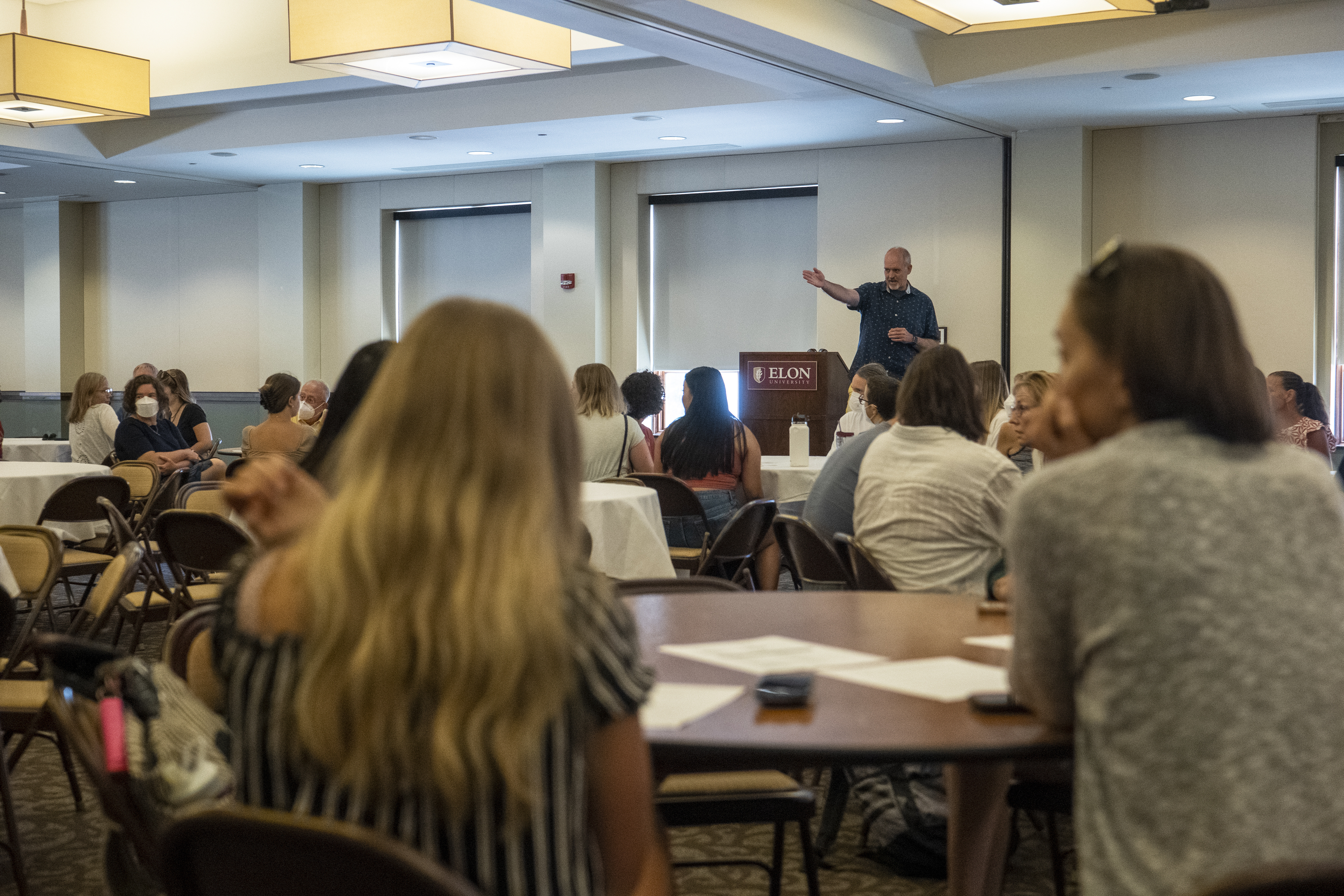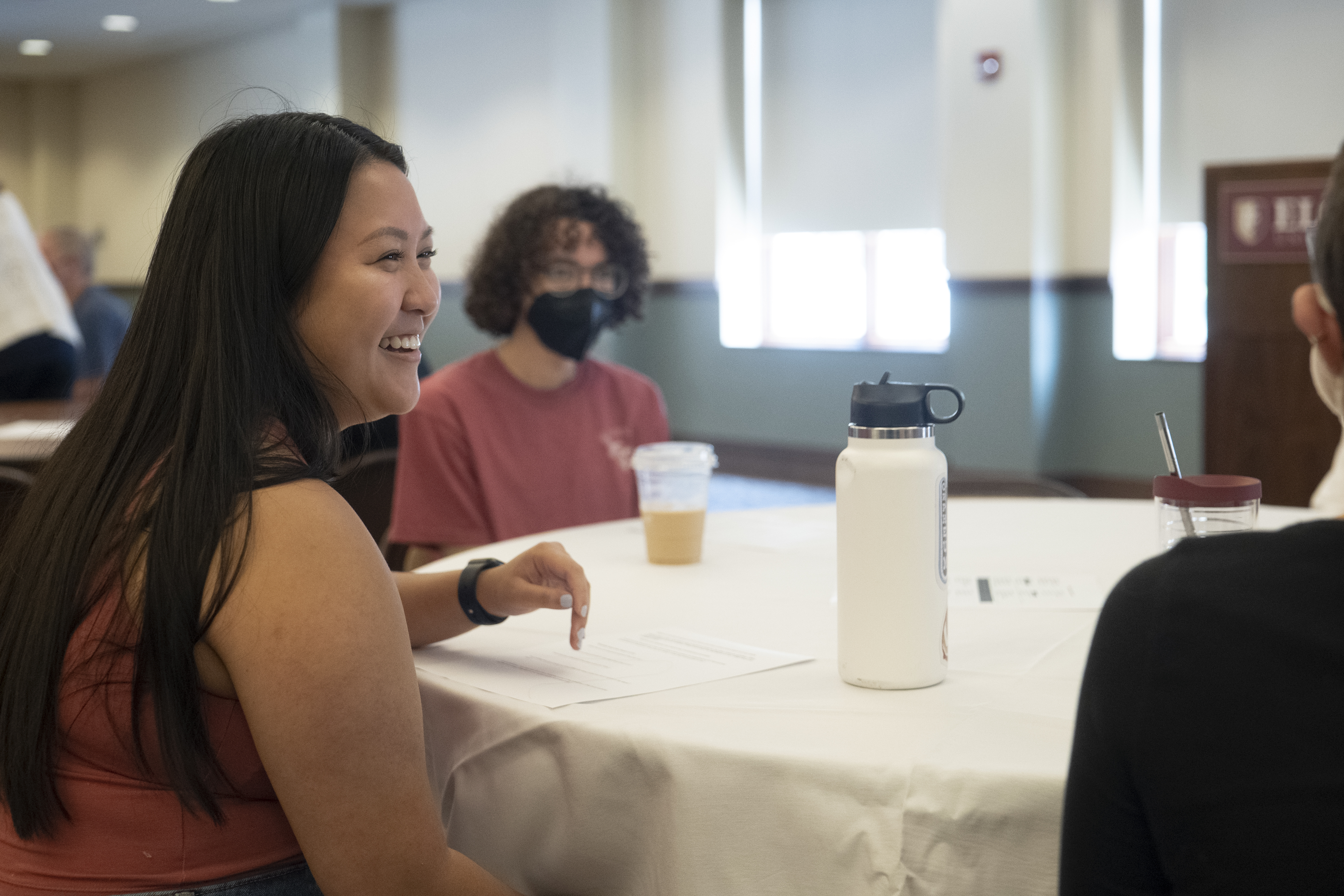Students and mentors in the Summer Undergraduate Research Experience gathered in Lakeside Upstairs on Tuesday, June 28, to discuss their research progress for midpoint check-in.
The 34 students in the Summer Undergraduate Research Experience gathered in Lakeside Upstairs for the midpoint check-in on their research during the eight-week-long program on Tuesday, June 28.
Called SURE, the signature Elon program offers undergraduates and their mentors the opportunity to devote time and resources outside of the main academic year to their research passions. Bolstered by a $3,000 stipend, these students work full-time in collaboration with their faculty mentors on projects that often extend across multiple years and lead to publications and conference presentations.
“Students and faculty like it because it’s a time to be able to be dedicated to their research without other distractions,” said Eric Hall, a professor of exercise science and director of undergraduate research. “The whole experience is really about trying to build a community of scholars with our students and our mentors.”
 The check-in served as a way for students to talk over any issues they may have encountered or lessons learned in the next first four weeks of their project with their classmates. Some departments have held social gatherings for students and mentors to bounce ideas off one another. But for other students who may be the sole researcher in a certain department or topic, the check-in is a great time to collaborate.
The check-in served as a way for students to talk over any issues they may have encountered or lessons learned in the next first four weeks of their project with their classmates. Some departments have held social gatherings for students and mentors to bounce ideas off one another. But for other students who may be the sole researcher in a certain department or topic, the check-in is a great time to collaborate.
“It gives them an opportunity to see other people and sort of troubleshoot or see where people are with different things,” Hall said.
Inspired by a family member who became a young father and discovered there was a gap in the literature on the experiences of young Black fathers, Kiara Hunter ’23 decided to focus her SURE research on Black adolescent fatherhood.
Hunter is interviewing adolescent Black fathers and then using an anti-racist framework called the Critical Race Praxis to see how existing public health programs can be more attuned to Black fatherhood in a sustainable way without reinforcing negative stereotypes.
In her time working on the SURE project, Hunter has noticed how she’s grown as a researcher and how the community has helped in her project.
 “I’ve definitely learned problem-solving skills. You have a plan and it doesn’t always go exactly like the proposal, so I learned to adapt,” Hunter said. “I also appreciate the community network because that’s been helpful in finding my demographic.”
“I’ve definitely learned problem-solving skills. You have a plan and it doesn’t always go exactly like the proposal, so I learned to adapt,” Hunter said. “I also appreciate the community network because that’s been helpful in finding my demographic.”
Stephanie Williams ’23, an international global studies major, is researching micro-enterprising and micro-financing for African immigrants and refugees. She chose that topic because it’s an interesting combination of business, anthropology and international studies.
With a project that features many different topics and fields, patience has been Williams’ biggest takeaway. “Not everything necessarily goes according to plan. Research is a lot of taking things as they come and adapting,” she said.
The students will be participating in additional workshops to help them prepare for the final poster presentation on July 20 in McKinnon Hall.



